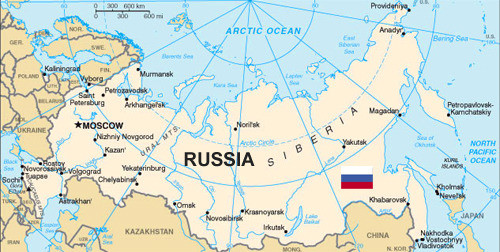Russian Supreme Court Wants Fewer Extremism Prosecutions

(Moscow Times – themoscowtimes.com – Anastasia Kornya – November 10, 2016)
The Russian authorities have stepped up their fight against extremism, convicting approximately three times as many people on such charges in recent years.
The greatest increase concerns convictions on Article 282 of the Criminal Code – “incitement of hatred or enmity” – with that number rising from 149 in 2012 to 444 in 2015. Most of those were crimes committed using the Internet.
According to the SOVA Center, a group that monitors abuses of anti-extremism legislation, the number of sentences based on Internet evidence has risen by 90 percent, and half of those were for posts, re-posts or “likes” on the VKontakte social network.
What’s more, the authorities interpret “extremism” very broadly, and at times illogically. For example, they have sentenced individuals for publishing the Nazi swastika as part of an anti-Nazi message. Experts explain that the siloviki pursue such criminal cases in order to pad their statistical reports, and that judges generally side with the prosecution.
The Supreme Court has decided to ease the growing pressure against freedom of expression. According to Supreme Court judge Oleg Zatelepin, the Court has issued new recommendations on legal practices for cases concerning anti-extremism charges. Those recommendations essentially call on courts to consider the context, form, and content of allegedly extremist publications, as well as the substance of the commentaries that attend the publication.
Zatelepin explained that re-posts, of themselves, are still not considered a crime, and that judges should take a closer look at the actions connected with a re-post when making their rulings.
He said that the Supreme Court issued its recommendations at the urging of the Presidential Council for Civil Society and Human Rights (HRC) that has expressed concern about the number of cases charging individuals for re-posts and “likes” on social networks.
In addition, the Supreme Court explained that public calls for action to violate the territorial integrity of Russia (Article 281.1 of the Criminal Code) are a sufficient basis for criminal liability, without any attendant action beyond words alone. However, if those words seek to induce individuals to specific acts, different articles of the Criminal Code would apply – such as Article 279 that prohibits organizing an armed rebellion.
Some of the proposals made by human rights activists have not been carried out, said HRC member Pavel Chikov. For example, the HRC recommended discontinuing the practice of considering government officials a vulnerable social group in need of special protection by anti-extremist legislation.
There was good reason for proposing such changes: there have been prominent cases of individuals sentenced for inciting hatred against the so-called “police officers” social group.
The HRC also recommended that general discussions of territorial integrity not be considered a criminal incitement to separatism, as is most often the case now, unless they contain calls for illegal action. The Supreme Court, however, practically upheld this practice, Chikov pointed out.
Thus, the main and the only positive change proposed by the Supreme Court is a kind of nod to the European Court of Human Rights, that requires more stringent standards of proof in cases that involve freedom of expression.
Now lawyers can cite the Supreme Court’s recommendations and demand that courts take the context of allegedly extremist Internet publications into account. Chikov points out, however, that this does not guarantee justice: in handing down their rulings, courts can always claim to have taken the author’s position and the context of the publication into account, without actually doing so.
